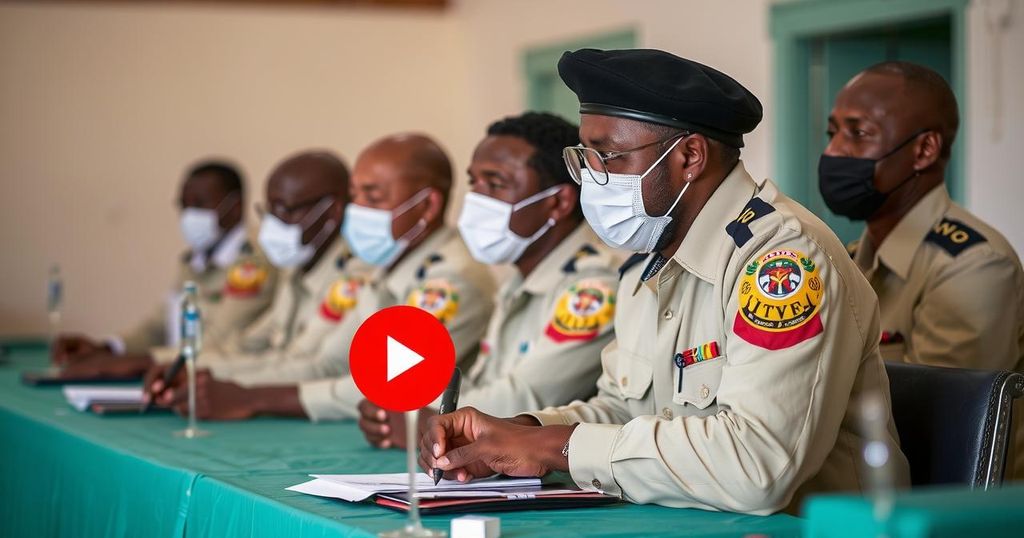Chad Seeks Military Protection Amid Rising Intensity Before Elections

Chad’s electoral commission has requested military support due to escalating violence ahead of the December 29 elections. Opposition supporters have disrupted rallies, raising concerns about armed conflict. The elections conclude a transitional period following President Idriss Deby’s death, with over 8.3 million registered voters and criticism from opposition parties regarding the elections’ fairness. President Deby’s commitment to transparent elections is met with skepticism.
In light of increasing violence and disruptions surrounding the upcoming elections, Chad’s electoral commission, ANGE, has requested military assistance to ensure the safety of election officials and candidates preceding the December 29 vote. The escalation of tensions has been marked by opposition supporters employing physical force to obstruct rallies organized by the ruling Patriotic Salvation Movement (MPS) across various cities. This scenario raises concerns about potential armed conflicts, prompting calls for military intervention to protect the electoral process.
The approaching elections are deemed significant, as they represent the conclusion of a three-year transitional period initiated after the death of President Idriss Deby Itno in April 2021. More than 8.3 million citizens of Chad have registered to participate in the elections, which encompass parliamentary, local council, and regional positions. The election campaign has, however, faced considerable unrest, with over 180 political parties fielding nearly 1,300 candidates, while approximately 1,000 election observers are accredited for monitoring the polls.
Opposition groups, who assert that the electoral process serves merely to entrench the current regime, have labeled the elections a “masquerade.” They have reported instances where their supporters have violently disrupted MPS campaign activities, and in various locations, roadblocks established by opposition members were dismantled by military forces. Avocksouma Djona, the president of Chad’s Party of Democrats, expressed the desire for a postponement of the elections due to the perceived lack of impartiality in the election management body, which he claims is under the control of President Mahamat Idriss Deby Itno.
Although President Deby has publicly pledged that the elections will be conducted transparently and fairly, the opposition remains skeptical, accusing him of planning electoral manipulation to retain control over parliament. Following his father’s longstanding regime, President Deby assumed power after a transitional period and has extended it beyond the initially promised timeline. These elections are critical in determining the future political landscape of Chad, especially as the nation strives to revert to civilian governance after a protracted military rule.
Chad has been undergoing a three-year transitional period following the death of its long-time leader, Idriss Deby Itno. Amid growing tensions and violence leading up to the December 29 elections, the electoral commission has sought military protection to ensure the safety of the election process. The current ruling regime, under President Mahamat Idriss Deby Itno, has faced significant opposition, with various groups asserting that the elections will not be free or fair, citing concerns over the management and control of the electoral process by Deby’s administration. This political environment is complicated by a number of opposing factions and civil society groups expressing their grievances and fears regarding the upcoming elections.
In conclusion, the situation in Chad as it approaches the December 29 elections highlights significant tensions between the ruling party and opposition forces. The call for military protection underscores the escalating violence and interruptions surrounding the electoral process. While the government claims to be committed to fair elections, widespread skepticism exists among opposition groups who fear manipulation and the continued grip of the current regime on power. The upcoming elections are pivotal as Chad seeks to transition back to a civilian-led government amidst these challenges.
Original Source: www.voanews.com






